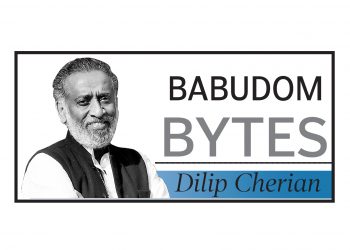Madhya Pradesh Chief Minister Mohan Yadav has mastered the art of prioritization, or should we say, the art of neglecting what he considers irrelevant. Take, for instance, the MP State Information Commission (SIC), which now stands as a monument to emptiness, with not a single commissioner in sight. Normally boasting 11 commissioners, this panel now resembles more of a ghost town than a hub of transparency. But, fear not, for the government has a handle on things – who needs information when you have the power of intuition, right? And let’s not forget about human rights, those pesky things that tend to get in the way of ‘development.’
The State Human Rights Commission finds itself in a similar predicament, with the chairman’s and one member’s chairs left conspicuously vacant. Who has time for human rights when there are more pressing matters at hand, like which colour pen to use for signing documents? And there’s more. The Consumer Dispute Redressal Commission, tasked with resolving consumer grievances, is also feeling the effects of Yadav’s minimalist approach to governance. With both the chairman’s and a member’s positions vacant, one can only imagine the backlog of complaints stacking up faster than a Jenga tower on a shaky table. We suppose that there is some satisfaction in knowing that you’ve saved a few bucks by cutting down on administrative costs. Some media reports suggest a staggering 19,500 appeals are languishing in limbo across these three commissions. Yadav’s priorities may seem unconventional to some, but rest assured, there’s a method to the madness – or at least, we hope there is.
Navigating the intersection of Government and business
Babu corridors are abuzz with reports that former Lt Governor of Ladakh and former Chief Information Commissioner (CIC) R.K. Mathur and former RA&W chief A.K. Dhasmana, both handpicked by Prime Minister Narendra Modi for prestigious positions, are reported to have joined the TATA Sons Board. Mathur is a former 1977 batch IAS officer of the Manipur-Tripura cadre. Retired babus joining senior positions in major corporations is not new, even though the debate still goes on whether it is beneficial to both the public and private sectors. Recall when the then-former Foreign Secretary, S. Jaishankar, briefly joined the Tatas as President of Global Corporate Affairs. But that was before Modi named him India’s External Affairs Minister. In the case of Mathur and Dhasmana, their backgrounds in public service could offer the Tatas valuable insights into government relations and strategic decision-making. Their understanding of regulatory frameworks can be invaluable for corporations, especially those operating in heavily regulated industries. Of course, it is often said that one man’s experience is another man’s indiscretion! There is a risk of perceived or actual conflicts of interest when retired babus transition to corporate roles, especially if they have previously dealt with issues or regulations directly impacting their new employer. The critical ethical issue here is a reasonable ‘cooling-off ’ period, which in this instance, these babus are well clear of. As with any such appointment, transparency and accountability are crucial.
Debarment of IRS officer sends a strong message
The recent debarring of 2004-batch Indian Revenue Service (IRS) officer Somanath Shivarudrappa Ukkali from central deputation and foreign assignments sends a clear message about the importance of accountability and adherence to duties within the administration. Ukkali’s failure to assume responsibilities of his appointed role as Chief Vigilance Officer at HMT Ltd, Bengaluru, under the Ministry of Heavy Industries, has led to significant consequences, including a five-year debarment from Central deputation and foreign assignments. Oddly, despite his official assignment, Ukkali expressed his inability to assume the responsibilities of the post. Subsequently, the Department of Revenue issued an order last month to ensure that the babu was duly informed of the repercussions of failing to join his designated role. Sources have informed DKB that this preemptive measure aimed to prevent any future claims of ignorance regarding the adverse outcomes of non-compliance. This incident highlights the need for utmost commitment from officials occupying key positions within the government. It also underscores the gravity of failing to fulfil designated roles and the potential repercussions for the defaulter. Hopefully, Ukkali’s example will serve as a stark reminder to all babus about the consequences of not playing by the book. S
